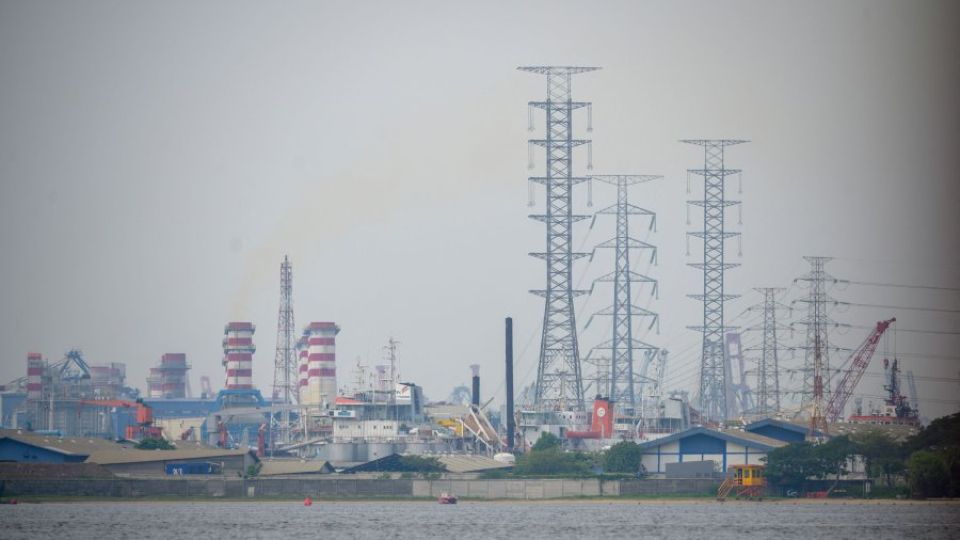February 4, 2025
JAKARTA – The government has begun questioning the need for Indonesia’s commitment to the 2015 Paris Climate Accords amid sluggish global progress and United States disruption, raising concerns ahead of a crucial moment when the country must choose to double down on its contributions or empower its dirty energy interests.
Since late last week, following Washington’s announcement that it will back out from the Paris Agreement in order to improve its economy, several of Jakarta’s high ranking officials have begun issuing statements that sparked concern on the country’s climate commitment.
At the ESG Sustainable Forum in Jakarta on Friday, special presidential envoy for energy and environment Hashim Djojohadikusumo said that it would be unfair to expect Indonesia, a country whose carbon emissions are only a fraction of that of the US, to shut down its coal-fired power plants in order to meet its climate targets.
“If the United States refuses to stick to the agreement, why should a country like Indonesia comply with such a pact?” Hashim said at the event that was organized by the CNBC Indonesia news outlet.
“This is a matter of justice. Indonesia’s [carbon emission] is only 3 tonnes [per year] while the US is at 13 tonnes. Where is the justice in asking Indonesia to shut down its power plants and reduce its steam energy?” he said.
Hashim’s statement came just one day following similar lamentations from Energy and Mineral Resources Minister Bahlil Lahadalia, who told reporters that coal-fired power plants were still needed to support Indonesia’s electricity needs and highlighted that the country could not be “trapped” by foreign pressure to fully transition into renewable energy.
“I am confused by the [pressure] to commit to the Paris Agreement. The newly elected American President [Donald Trump] has withdrawn from the pact himself, despite the US being one of the agreement’s initiators. As such, let us not be trapped,” Bahlil said.
“How is it possible that we are forced to close down our [coal-fired] power plants? Who would pay for it? So far there have been no donor agencies helping us pay for it. Zero,” Bahlil added.
Read also: Trump leaves Paris climate agreement, doubles down on fossil fuels
These back-to-back statements sparked concern among climate non-governmental organizations, such as the Madani foundation, which responded by urging that Jakarta keep its Paris Agreement pledges regardless of Washington’s recent withdrawal.
“That reflects the government’s lack of understanding and its indifference to the urgency of the climate crisis and its reluctance to prioritize the climate justice agenda,” Madani deputy director Giorgio B. Indrarto said.
Statements by Hashim and Bahlil come just weeks ahead of a deadline to submit improved national climate action plans, called the Nationally Determined Contributions (NDCs), to the United Nations Framework Convention on Climate Change (UNFCCC).
Under the Paris accords that were endorsed in 2015 at the UN Climate Conference, signatory states must strive toward regularly increasing their self-defined targets to reduce their carbon emissions and mitigate climate change, with the collective target set at limiting global temperature rise to 1.5 degrees.
In 2016, Indonesia ratified the Paris Agreement, following prior announcements from former president Joko “Jokowi” Widodo that a 29 percent unconditional target, along with a 41 percent target with foreign assistance, to reduce emissions had been set for 2030 as Indonesia’s first NDC.
In the 2022 NDC document, Indonesia aimed to reduce its emissions by 31.89 percent independently, or 43.2 percent with international assistance by 2030.
Key to this goal is a government commitment to the complete phasing out of coal-fired power plants by 2040, an early plant retirement scheme that according to the Institute for Essential Services and Reform (IESR), would cost the country some US$27.5 billion. Another $1.2 trillion would also be needed to cover the cost of building renewable power plants, adding up to an exorbitant price tag that would require international assistance.
Yet Jakarta has struggled to secure foreign funds. For example, only a fraction of the US-backed Just Energy Transition Partnership (JETP) promising $21 billion in assistance has been unlocked since 2022.
Officials in Jakarta have on several occasions expressed their frustration over the unfulfilled promise of larger nations with bigger emissions and since 2016 have regularly slashed down the targeted share of renewables in the national energy mix.
Read also: Past failures haunt govt’s new energy transition plans
Earlier this year, for example, the government announced that it was planning to set its target of renewable energy to between 17 and 19 percent by 2025, a drop from the previous figure of 23 percent for the same period.
In 2024, renewable energy made up only 13 percent of Indonesia’s energy mix, falling short of the 17.9 percent target set for that year.
Hashim also said last week that the government currently has no plan to fully retire its coal-fired power plants by 2040, stating that such ambitions would be “economic suicide”.
Despite the statements, there has been no indication from the government that it would withdraw from the Paris Agreement, with officials still hinting that it would continue to consider the pledge’s targets going forward as they attempt to harness other alternative sources of energy.
“We have to boost our competitive strengths while still paying attention to the agreement’s consensus,” Bahlil said last week.


